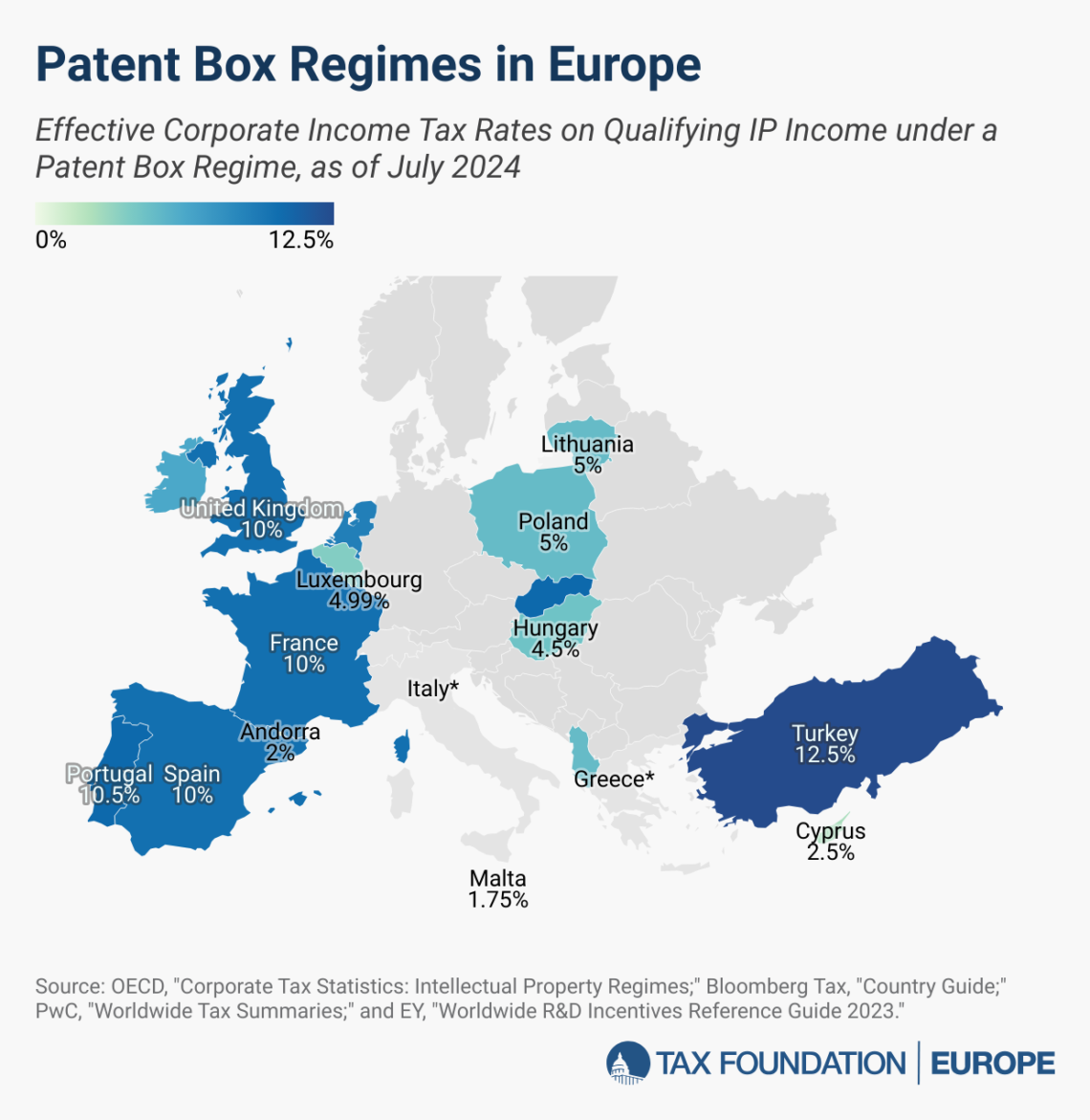
The UK Patent Box Tax Scheme: Keeping Intellectual Property on Home Soil
The UK Patent Box is a tax incentive designed to encourage companies to keep and commercialise their intellectual property (IP) within the UK. By offering a reduced corporation tax rate of 10% on qualifying profits derived from patented inventions, the scheme aims to make the UK an attractive hub for innovation and investment. But how does it work, and what are the alternatives?
How the UK Patent Box Works
The Patent Box scheme applies to companies that own or exclusively license patents granted by the UK Intellectual Property Office (IPO), the European Patent Office (EPO), or certain other qualifying jurisdictions. To benefit, businesses must:
- Be liable for UK Corporation Tax
- Have developed the patented innovation or made significant improvements to it
- Elect into the scheme within two years from the end of the relevant accounting period
Once approved, profits directly attributable to the patented technology benefit from a 10% corporation tax rate, significantly lower than the UK’s 25% main rate.
Why the UK Encourages Companies to Retain IP Onshore
Many multinational corporations shift IP offshore to jurisdictions with lower tax rates, but the UK government has designed incentives like the Patent Box and R&D Tax Credits to keep IP within the UK. The primary reasons include:
1. Tax Revenue Retention
When companies register and exploit their IP within the UK, the government collects corporate tax, employment tax, and VAT associated with commercial activities. Keeping IP onshore ensures that profits remain within the UK tax net.
2. Innovation and Job Creation
A strong domestic IP ecosystem leads to greater R&D investment, job creation, and knowledge transfer between universities, businesses, and research institutions.
3. Compliance with OECD BEPS Rules
The OECD’s Base Erosion and Profit Shifting (BEPS) project discourages profit shifting to tax havens. The UK Patent Box is designed to comply with these regulations while maintaining a competitive tax structure.
Alternative UK Incentives for IP-Driven Businesses
In addition to the Patent Box, UK businesses can benefit from:
1. R&D Tax Credits
- SMEs can claim up to 186% of qualifying R&D expenditure as a tax deduction.
- Large companies can use the R&D Expenditure Credit (RDEC), offering a 20% credit on eligible R&D spending.
2. Enterprise Investment Scheme (EIS) & Seed Enterprise Investment Scheme (SEIS)
- EIS: Investors receive 30% income tax relief on investments in qualifying high-growth UK companies.
- SEIS: Offers 50% tax relief on investments in very early-stage businesses.
3. Innovate UK Grants
- Direct funding for companies developing cutting-edge technology and innovation in sectors like biotech, AI, and clean energy.
The Offshore IP Strategy: Pros & Cons
Some companies establish offshore IP holding structures in low-tax jurisdictions like Ireland, Luxembourg, or the Cayman Islands. While this can offer financial benefits, there are key considerations:
✅ Pros of Offshore IP Holding
- Lower Tax Rates: Some jurisdictions offer 0%-12.5% corporate tax rates.
- Global IP Management: Allows businesses to centralise IP across multiple markets.
- Flexibility in Licensing & Royalties: Potential for cross-border licensing to reduce tax burdens.
❌ Cons of Offshore IP Holding
- OECD & HMRC Scrutiny: BEPS rules mean that IP must be substantively developed in the offshore jurisdiction, making it harder to justify tax advantages.
- Loss of UK Patent Box Benefits: UK companies using offshore IP structures may lose access to the 10% Patent Box rate.
- Repatriation Costs: Bringing IP back to the UK later may result in capital gains tax and legal restructuring costs.
Conclusion: Should You Use the UK Patent Box or Go Offshore?
For most UK companies, keeping IP onshore and leveraging Patent Box, R&D tax relief, and UK grants offers a secure and compliant tax strategy. While offshore IP structures can provide savings, they come with increased regulatory risks and potential reputational damage.
By carefully assessing long-term tax efficiency, compliance obligations, and commercial strategy, businesses can determine the best approach to managing their intellectual property.
#UKPatentBox #IntellectualProperty #TaxIncentives #Innovation #BusinessGrowth #RDTaxCredits #UKBusiness #IPTax #OffshoreTax #Startups #TechInvesting





